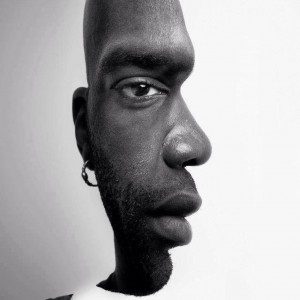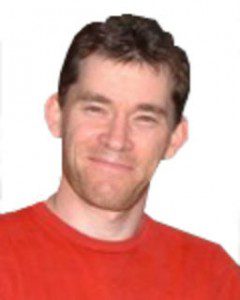By Steve Taylor Ph.D
Guest Writer for Wake Up World
If there is one concept which has been under constant attack by psychologists and philosophers over the last few decades, it is the idea of ‘you’ – that you are a real entity or ‘self’. Many modern philosophers and scientists suggest that this sense of being ‘someone’ is illusory, or just a simple product of brain activity. Somehow the billions of neurons in your brain work together to produce it, and all of the thoughts and feelings which it incorporates.
This view was expressed very graphically by the scientist Francis Crick, who wrote: “You, your joys and your sorrows, your memories and your ambitions, your sense of personal identity and free will, are in fact no more than the behavior of a vast assembly of nerve cells and their associated molecules.”
From a less biological perspective, the philosopher Daniel Dennett speaks of the illusion of the ‘Cartesian Theatre’, the sense that there is ‘someone’ in our heads looking out at a world ‘out there’, and also watching our own thoughts pass by. In reality, says Dennett, there are only mental processes. There are streams of thoughts, sensations and perceptions passing through our brains, but there is no central place where all of these phenomena are organised.
Similarly, the psychologist Susan Blackmore has suggested that the self is just a collection of what she calls ‘memes’ – units of cultural information such as ideas, beliefs and habits. We are born without a self, but slowly, as we are exposed to environmental influences, the self is ‘constructed’ out of the memes we absorb.
Modern neuroscience seems to reinforce such views. Neuroscientists claim to be able to ‘locate’ the parts of the brain responsible for mental phenomena such as aesthetic appreciation, religious experience, love, depression and so on, but they haven’t found a part of the brain associated with our underlying sense of self. Therefore, they feel justified in concluding that this doesn’t exist.
‘Ghosts Don’t Exist’, says the Ghost
There are many problems with the attempt to ‘reduce’ our sense of self to brain activity. This is related to the ‘hard problem’ of explaining the origins of conscious experience, so-called to distinguish it from the ‘easy problems’ of mental abilities and functions such as memory, concentration and attention. Whilst we might be able to understand these phenomena, the problem of how the brain might produce consciousness is on a completely different level. The brain is just a soggy clump of grey matter – how could that soggy mass possibly give rise to the richness and depth of consciousness? To think that it could is a ‘category error’ – the brain and consciousness are entirely distinct phenomena, which can’t be explained in terms of each other.
And on a more practical basis, after decades of intensive theorising and research, no-one has yet put forward any feasible explanation of how the brain might produce consciousness. The ‘hard problem’ seems completely insurmountable.
There is a basic absurdity in these attempts to show that the ‘self’ is illusory. They always feature a self trying to prove that it doesn’t exist. They are caught in a loop. If the self is an illusion to begin with, how can we trust its judgements? It’s a bit like a ghost trying to prove that ghosts don’t exist. Perhaps it may be right, but its illusory nature doesn’t inspire confidence. Dennett and Blackmore are presuming that there is a kind of reliable, objective observer inside them which is able to pass judgement on consciousness – and that presumption contradicts their own arguments. That is the very thing whose existence they are trying to disprove.
Related to this, there is a problem of subject/object confusion. All of these theories attempt to examine consciousness from the outside. They treat it like a botanist examining a flower, as an object to scrutinize and categorize. But of course, with consciousness there is no subject and no object. The subject is the object. You are consciousness. So it is fallacious to examine it as if it is something ‘other.’ Again, you are caught in a loop. You can’t get outside consciousness. And so any ‘objective’ pronouncements you make about are fallacious from the start.
An interesting question to ponder is: why do human beings invest so much energy into trying to prove that they don’t exist? Why do scientists and philosophers seem so intent on proving that they themselves are illusions? Perhaps there is a kind of repressed suicidal impulse at work here. Perhaps the individuals in question experience a deep-rooted self-hatred and an impulse for self-destruction which, at conscious level, has been translated into an impulse to negate their own identity and existence. More likely, though, these views are symptom of the general nihilism of our culture, the collapse of values which has followed from materialistic science. The fact that these theories have become prevalent, despite being fallacious, shows how well they fit to the present ‘zeitgeist’.
Subjective Investigation
So does the self exist? Is there really anybody there inside your own mental space?
I think the best way to answer the question is to take a different approach. Rather than attempting to analyse consciousness from the outside as if it is an object, the best approach is to embrace subjectivity, and delve into your own consciousness. Try meditation, for example. In deep meditation, you might find yourself in a state of complete mental quietness and emptiness, with no thoughts, no perceptions, no information processing, no concentration. In fact, this state can be seen as the ‘goal’ of meditation (at least according to some traditions). The philosopher Robert Forman has called it the ‘pure consciousness event’ – a state in which consciousness exists without content, and rests easefully within itself. I have experienced this state myself, and am familiar with its qualities. Paradoxically, although consciousness is empty, it has a quality of fullness too. It appears to be full of energy – a powerful energy which has a quality of well-being, or even bliss. (This is what Indian Vedanta philosophy describes as satchitananda – being-consciousness-bliss.) There is also a quality of spaciousness – somehow my own consciousness seems to become wider and larger, to spread beyond my own brain or body. This can lead to a sense of connection or even oneness – a feeling that my consciousness is merging with a force or energy which somehow seems fundamental to the world, or the cosmos.
But most importantly in terms of my argument in this article, in these moments, one of the qualities of consciousness is a sense of ‘I’. There is still a sense of identity, even if this sense may be different to the identity of a normal state of consciousness. This identity does not feel separate or boundaried. It feels part of a greater unity, but still has a sense of I-ness. You could compare it to a wave having a sense of its own existence of a wave but at the same time being aware of itself as a part of the sea. There is still an ‘I’ which has awareness of itself and of its situation. From this point of view, it appears that consciousness or identity is not an illusion. In this state, there are no ‘memes’ and no streams of mental processes, but consciousness still appears to exist. I would therefore say that the sense of self is fundamental to us, from the deepest levels of our being. Of course, this fundamental sense of ‘I’ is acted on by all kinds environmental, social and psychological influences, and becomes ‘constructed’ to a large degree. You could compare it to how a Roman fort is built upon and expanded over centuries until eventually develops into a modern city. But there is a fundamental kernel of ‘I-ness’ which is always there, underlying all of the activity and all the construction.
Of course, this is just my own subjective experience. I shouldn’t make any universal claims for it – although, as Robert Forman has pointed out, the ‘pure consciousness event’ seems to be universal in the sense that human beings from culture to culture have independently described experiences of it throughout history. Ultimately, however, the only real way to substantiate this is for you to try it out yourself – to reach a deep state of meditation, and see if your own experience accords with mine.
Previous articles by Steve Taylor:
- The Power Of Silence
- Happiness Comes from Giving and Helping, Not Buying and Having
- A Sense of Purpose Means a Longer Life
- Empathy – The Power of Connection
- Ecocide: The Psychology of Environmental Destruction
- Transcending Human Madness
- If Women Ruled the World – Is a Matriarchal Society the Solution?
About the author:
Steve Taylor holds a Ph.D in Transpersonal Psychology and is a senior lecturer in Psychology at Leeds Metropolitan University, UK. For the last three years Steve has been included in Mind, Body, Spirit magazine’s list of the ‘100 most spiritually influential living people’ (coming in at #31 in 2014).
Steve is also the author of Back to Sanity: Healing the Madness of Our Minds and The Fall: The Insanity of the Ego in Human History and the Dawning of A New Era. His books have been published in 16 languages and his research has appeared in The Journal of Transpersonal Psychology, The Journal of Consciousness Studies, The Transpersonal Psychology Review, The International Journal of Transpersonal Studies, as well as the popular media in the UK, including on BBC World TV, The Guardian, and The Independent.
Connect with Steve at StevenMTaylor.com or follow Steve at Facebook.com/SteveTaylorAuthor.
Related Posts
Source Article from http://wakeup-world.com/2015/03/23/reclaiming-the-self-is-your-sense-of-self-an-illusion/
Views: 0
 RSS Feed
RSS Feed

















 March 23rd, 2015
March 23rd, 2015  FAKE NEWS for the Zionist agenda
FAKE NEWS for the Zionist agenda 











 Posted in
Posted in 
















